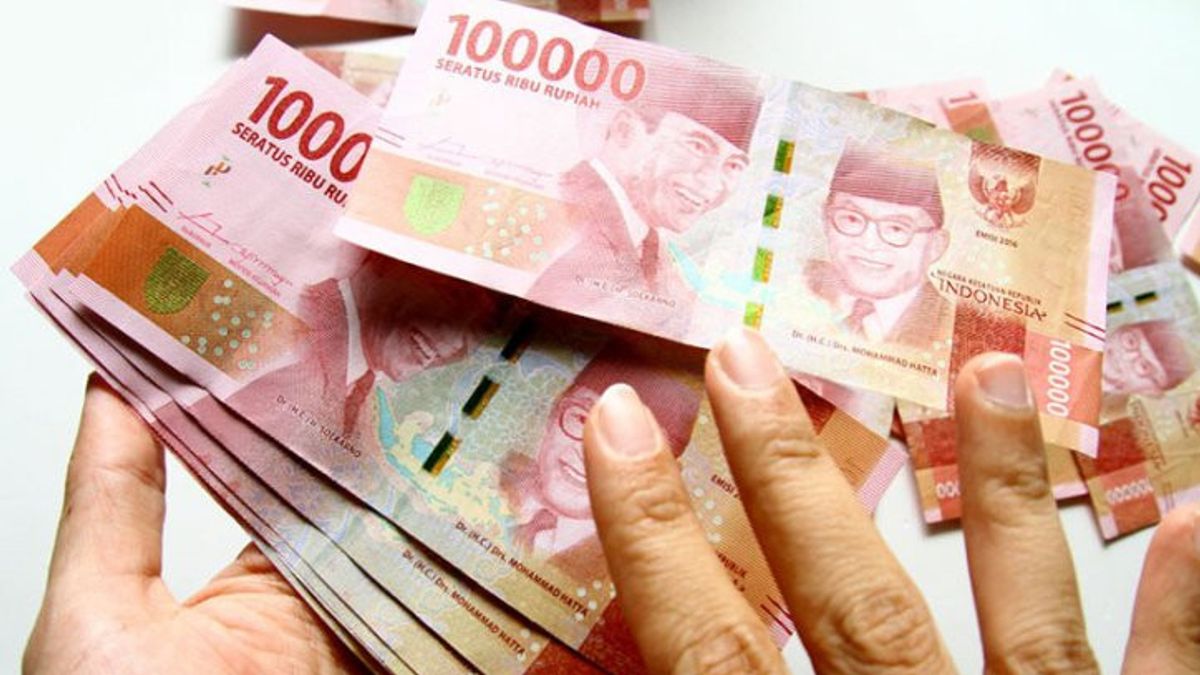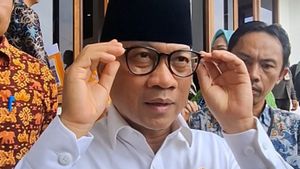JAKARTA People's consumption spending activities that continue to take savings have an impact on the Indonesian economy.
Citing data from Bank Indonesia (BI), banking Third Party Funds (DPK) in November 2023 were recorded at IDR 8,029.7 trillion or grew by 3.8 percent on an annual basis. The growth of the DPK was influenced by the growth of individual DPK which grew by 5.1 percent on an annual basis, while corporate DPK grew by 3.1 percent on an annual basis.
Furthermore, banking demand grew 3.4 percent (yoy), or an increase compared to the previous month which grew 1.8 percent (yoy). Meanwhile, savings grew by 2.5 percent (yoy), the figure was relatively stable compared to growth in October 2023. And future savings grew 5.2 percent (yoy), after growing 6.9 percent (yoy) in the previous month.
Center of Macroeconomics and Finance researcher Indef Riza Annisa Pujarama revealed that the government is targeting Indonesia's economic growth in 2023 at 5.3 percent. However, economic growth in the third quarter of 2023 decreased by 4.94 percent compared to the second quarter of 2023 of 5.17 percent.
"So the average for economic growth in the three quarters is 5.05 percent, so for the 5.3 percent target there is still about 0.25 percent to be achieved," he explained in the Public Discussion 'Evaluation and Perspective Economist of Women's INDEF to the National Economy, Thursday 28 December.
According to Riza, the decline was influenced by slowing public consumption, reduced savings, and many people used their money to pay installments compared to consumption.
"Consumption slows down, on the other hand savings also continue to fall, it is used to pay installments, not for consumption," he said.
Riza saw that towards the end of the year there was a change in the pattern of community financing from what is usually used for consumption, which is now being detained, thus affecting Indonesia's economic growth.
According to Riza, household consumption is the largest sector in contributing to economic growth.
"In terms of spending, which contributes the most to GDP, namely from the household consumption sector. This household consumption growth decreased from 5.22 in the second quarter of 2023 to 5.06 percent in the third quarter of 2023. This caused economic growth in the third quarter to decrease," he concluded.
SEE ALSO:
As is known, BI also noted that bank credit disbursement in November 2023 was recorded at IDR 6,930.1 trillion or grew 9.7 percent (yoy), an increase compared to the previous month of 8.7 percent (yoy).
This development is in line with the growth in lending on corporate debtors by 9.9 percent (yoy) and individual debtors 9.3 percent (yoy).
Economic liquidity or money supply in a broad sense (M2) in November 2023 amounted to IDR 8,573.6 trillion or grew 3.3 percent (yoy), relatively stable compared to the previous month's growth.
Meanwhile, the development of M2 in November 2023 was mainly influenced by the development of lending and net bills to the Central Government (Pempus).
Meanwhile, the net bill to the Pempus contracted by 15.0 percent (yoy), after contracting by 11.7 percent (yoy) in October 2023. Net foreign assets grew by 0.3 percent (yoy), after growing by 6.1 percent (yoy) in the previous month.
The English, Chinese, Japanese, Arabic, and French versions are automatically generated by the AI. So there may still be inaccuracies in translating, please always see Indonesian as our main language. (system supported by DigitalSiber.id)
















